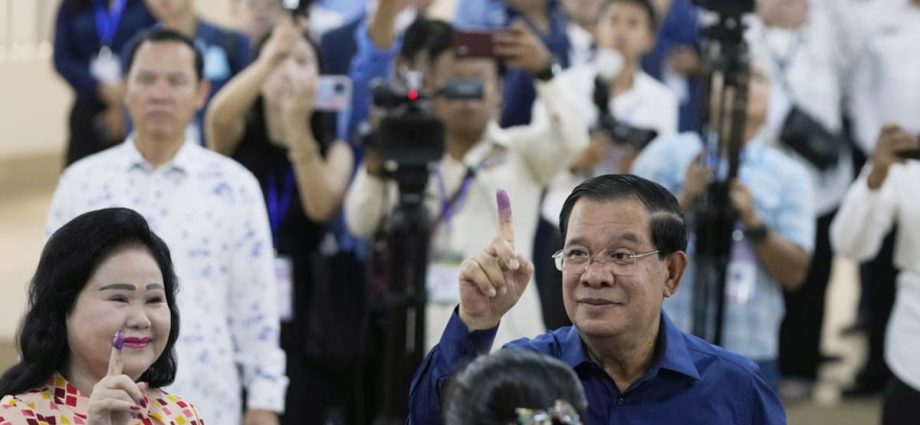
PARTIES DISSOLVED
The only real challenge to Hun Sen’s CPP had come from the Candlelight Party (CP). But in May, the country’s electoral body refused to register it, rendering it ineligible to compete.
The decision came after the party performed better than expected at last year’s local elections, winning 22 per cent of the popular vote.
Internationally, Hun Sen has played off tensions between the United States and China, racking up huge sums in Chinese investment that came with no demands for democratic reforms.
Speaking before the vote, the CP told AFP that the registration decision meant that there was no way the election could be either free or fair.
“As for results, everyone knows who will win,” said Rong Chhun, the party’s vice-president.
There was similar despondency among some people voting under heavy police presence at a dusty polling station in Phnom Penh.
“I don’t feel excited or anything because there are no opposition parties left,” Oum Sokum, 51, told AFP.
But in a country that was torn apart within living memory by genocide and war, others said they were happy to vote for stability.
“I want to vote for the person who can help the country become more developed. I want to live in peace and have harmony,” Chea Phearak, 36, told AFP.
Freedom of speech has been heavily stifled ahead of the election, with one of the few remaining independent news outlets, Voice of Democracy, shut down earlier this year.
And last month, Hun Sen ordered election laws changed, banning anyone who fails to vote in the poll from ever running for office – a move that will affect exiled rivals.
Among them is long-time foe Sam Rainsy, in self-exile in France for almost a decade to avoid criminal convictions he says are politically motivated.
Domestically, opposition leader Kem Sokha languishes under house arrest, after being sentenced to 27 years for treason over an alleged plot with foreigners to topple Hun Sen’s government.

